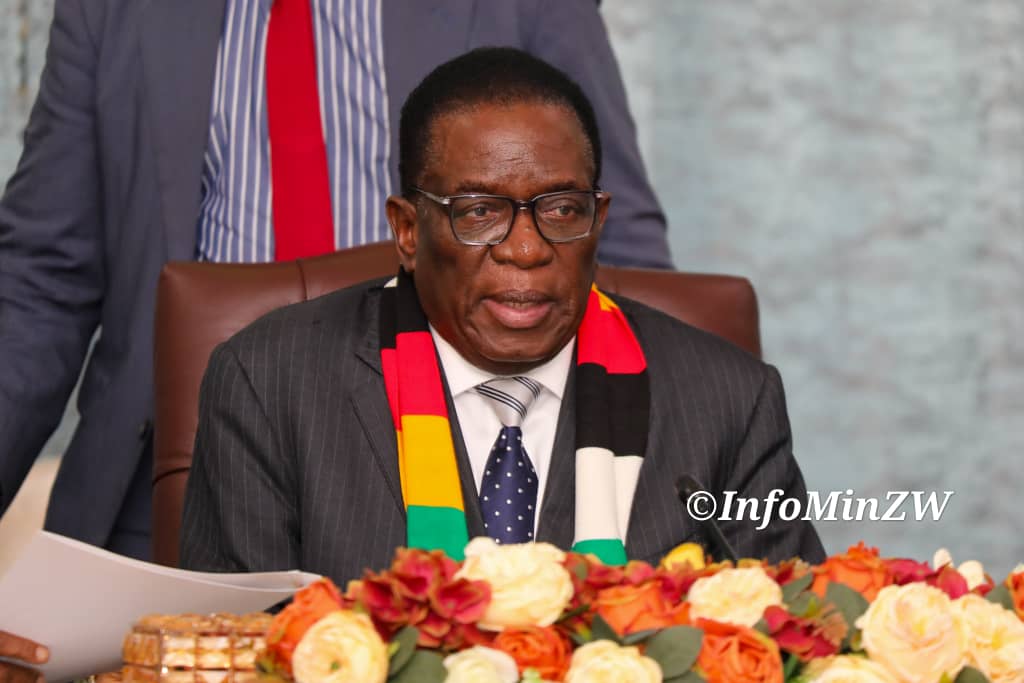HARARE — President Emmerson Mnangagwa said Saturday that Zimbabwe will suspend all tariffs on goods imported from the United States, a move aimed at fostering stronger bilateral trade ties following new U.S. tariffs on Zimbabwean products.
Mnangagwa announced the decision on his official X account, saying it was meant to promote mutual cooperation with Washington and support the growth of trade between the two countries.
“The principle of reciprocal tariffs, as a tool for safeguarding domestic employment and industrial sectors, holds merit,” Mnangagwa said. “However, the Republic of Zimbabwe maintains a policy of fostering amicable relations with all nations, and cultivating adversarial relationships with none.”
“In the spirit of constructing a mutually beneficial and positive relationship with the United States of America, under the leadership of President Trump, I will direct the Zimbabwean government to implement a suspension of all tariffs levied on goods originating from the United States,” he said. “This action underscores our commitment to a framework of equitable trade and enhanced bilateral cooperation.”
Mnangagwa’s remarks came days after President Donald Trump announced a new tariff regime that includes an 18% duty on Zimbabwean exports. Speaking from the White House Rose Garden on Wednesday, Trump unveiled a sweeping tariff plan that imposes a 10% base rate on most imports into the U.S. and significantly higher rates on goods from select countries.
Zimbabwe’s 18% tariff was determined based on a 2024 goods trade deficit of $24.1 million and total Zimbabwean exports to the U.S., which amounted to $67.8 million. Zimbabwe’s major exports to the United States include sugar, tobacco and ferroalloys.
Though trade between the two countries is modest, the new tariffs could weigh on Zimbabwe’s already limited exports. Zimbabwean tobacco products, for example, are already subject to high tariffs and excise duties in the U.S.
Trump’s reciprocal tariff policy has drawn criticism from global leaders. European Commission President Ursula von der Leyen warned that the measures could hurt the global economy and said the European Union may retaliate if negotiations with Washington fail. Japan and other U.S. trading partners have also expressed concern.
Trump defended the measures as necessary. “For decades, our country has been looted, pillaged, raped, and plundered by nations near and far, both friend and foe alike,” he said Wednesday.
The 10% base tariff takes effect April 5, while the reciprocal country-specific rates, including the 18% tariff on Zimbabwean goods, are scheduled to begin April 9. Exemptions have been made for some goods, such as pharmaceuticals, copper and other critical minerals that are not available domestically in the U.S.
Mnangagwa’s administration says it hopes the tariff suspension on U.S. goods will support dialogue and signal Zimbabwe’s readiness to engage constructively on trade, rather than escalate tensions.















